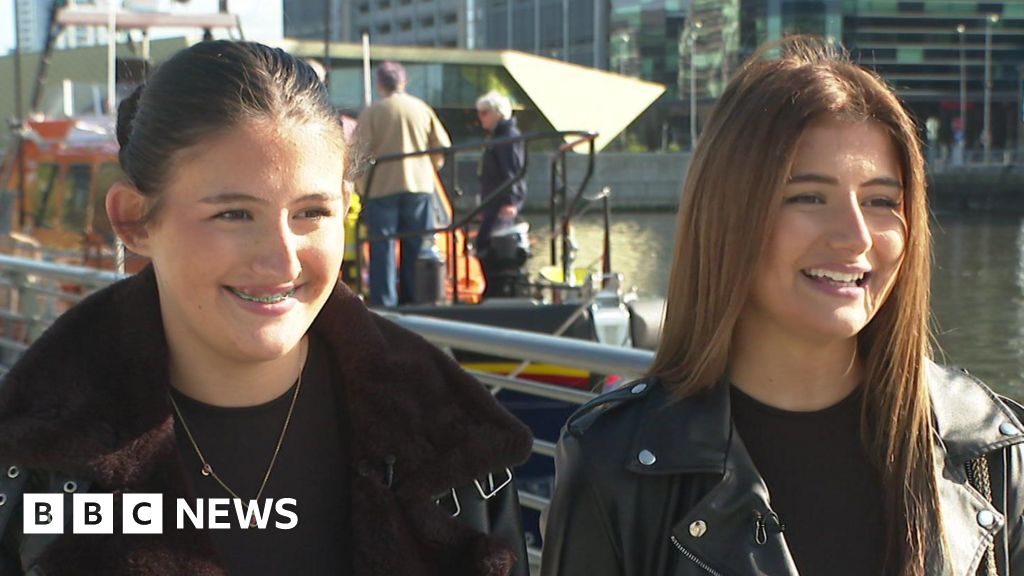Twin sisters who survived being swept out to sea on an inflatable unicorn have remembered their “terrifying” ordeal in a project to celebrate the 200th anniversary of the Royal National Lifeboat Institution (RNLI).
Lola and Evie, from Ellesmore Port in Cheshire, were on a family beach holiday in Kent in 2018 when they were hit by a sudden gust of wind.
Evie, now 17, said: “It was terrifying how fast we were going out – we didn’t know what to do at that point.”
The girls, who had fortunately seen the RNLI’s “float to live” advice the previous day, were rescued by RNLI crews based in Margate and Ramsgate.
“If we didn’t see that, it would be a complete different story,” said Evie of the charity’s water safety advice.
The RNLI recommends anyone struggling in water to:
- Tilt your head back with your ears submerged
- Try to relax and breathe normally
- Gently move your hands to help you stay afloat if you need to
- Spread your arms and legs out to improve stability – it is ok if your legs sink
- Once your breathing is under control, call for help or try to swim to safety
Evie and Lola’s dad Ben said: “What would’ve been a beautiful beach trip turned into absolute chaos within 10-15 minutes.
“Fortunately for us, the RNLI were on hand to save the day.”
A photograph of the relieved family meeting the volunteers who saved the girls has been included in a time capsule marking the RNLI’s double centenary.
The capsule – which will now be sealed for the next 50 years – has been passed between crews in a week-long “coast to cobbles” relay from the Cumbrian town of Silloth to Salford Quays in Greater Manchester.
Since its formation in 1824, the RNLI’s volunteer crews and lifeguards have saved more than 146,000 people – an average of two every day.
RNLI community manager Sophie Wood said volunteers made up about 95% of the organisation.
“For us to continue to save lives for another 200 years we need to inspire the next generation,” she said.





